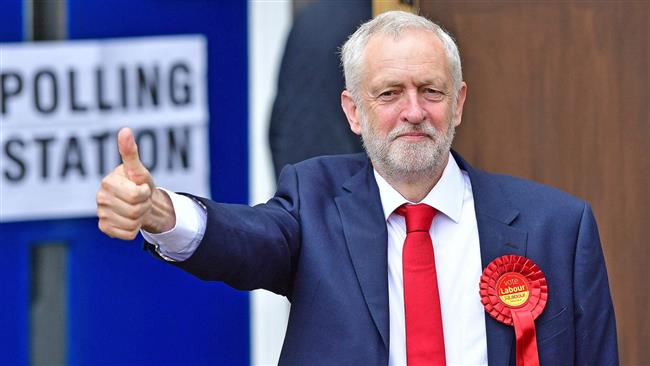UK’s divided Labour ponders second Brexit vote at party conference
Britain’s Labour Party is facing a huge choice at its annual conference – whether or not to back a new referendum that could halt the country’s impending departure from the European Union. Support from the main opposition party would be a major boost to campaigners for a second vote on Brexit.
Ever since Britain voted in 2016 to leave the EU, Labour’s leadership has said it will respect the result. Now, with divorce negotiations with the EU stuck and Britain due to leave in March, many members think the party must change its course.
More than 100 local Labour associations have submitted motions to the conference, which starts Sunday, urging a new vote. Labour leader Jeremy Corbyn told the Sunday Mirror newspaper that if the party “makes a decision I will not walk away from it.”
Most of Corbyn’s MPs and younger supporters are in favour of the EU, but many voters in the party’s working-class heartlands back Brexit.
Corbyn has so far tried to avoid the divisive subject, instead sticking to promoting a domestic social agenda that helped him upset the odds at last year’s general election and strip Prime Minister Theresa May of her parliamentary majority.
But with Brexit negotiations due to come to a climax before the end of the year, party members look set to force a debate and a vote on the conference floor pushing for a second referendum – an issue on which Corbyn has tried to stay as ambiguous as possible.
Experts therefore expect Corbyn to try stick to his tried-and-tested method when he delivers his keynote speech on Wednesday, prioritising efforts to bring down the government rather than trying to stop Brexit.
“It’s going to be a very interesting conference,” Denis MacShane, a former European Affairs minister, told FRANCE 24 in an interview.
“In the last two years, Jeremy [Corbyn] has on the whole been in the same place as [Theresa] May. But now there’s a real debate after the very inefficient way she’s handled things,” the veteran Labour member said. “People – with all the new facts, all the new evidence and all the new details, and particularly the very real worry of an economic disaster by the possible breakup of the United Kingdom – [feel] that we should have a second consultation, just as they’ve had in France, Denmark and Switzerland, when referendums don’t turn out to be as productive as people hope.”
He added: “There are so many new facts that we now know […] Britain can’t survive when a thousand Japanese firms are told ‘you’ll lose all access to the single market, now relocate’. […] Banks are already doing that […] This isn’t good for British finances, for the City for the industrial economy, or for the working class jobs – everybody knows this. So now the question is: how do we get out of it?”
Tim Bale, chair in politics at University of London Queen Mary, said he expected party leaders to try to “preserve the ambivalence that we have seen so far” on Brexit.
“Whether they would be able to, in the face of the crushing coming from below, would be an interesting thing to watch,” he told AFP.
Pro-EU supporters are due to hold a large march as the conference opens on Sunday, calling for a second vote.
Anti-Semtism row
Another potential issue hampering Corbyn’s designs on power is the anti-Semitism row that has dogged the party since he took over in 2015.
He recently admitted the party had a “real problem” with the issue, leading veteran MP Frank Field to quit last month. Field said the leadership was becoming “a force for anti-Semitism in British politics”.
The National Executive Committee (NEC), the party’s ruling body, agreed this month to adopt in full an international definition of anti-Semitism for its code of conduct, but only after fierce opposition from those in the party who believe it will limit criticism of Israel.
Labour’s polling numbers have remained relatively stable in recent months, although analysts say the chaos in the Tory party could mask any impact of the row, which continues to roil the party.
A group of Labour campaigners will hold a rally on Sunday to protest against Corbyn’s handling of the scandal. “The sheer levels of animosity that exists between Corbyn and his opponents is quite remarkable,” Anand Menon, political professor at King’s College London, told AFP.
“If they want this conference to work they are going to have to deal with anti-Semitism, rather than pretending that they have dealt with it already,” he added. The row has deepened the divisions between Corbyn’s far-left supporters and the more centrist faction of MPs who held power in the party after Tony Blair took charge in 1994.
Centrist MPs now find themselves on the sidelines and battling for their political lives in the face of aggressive attempts by Corbyn’s supporters to de-select them, another issue that could raise tensions during conference. “The leadership might try and persuade Momentum activists not to make it (de-selection) a central plank of conference but the language is getting very, very abrasive,” said Menon.
(FRANCE 24 with AP, AFP)





